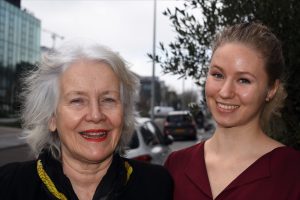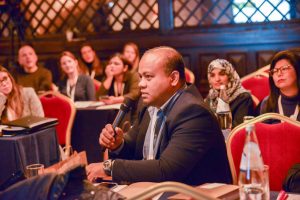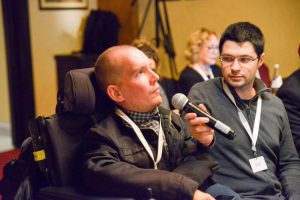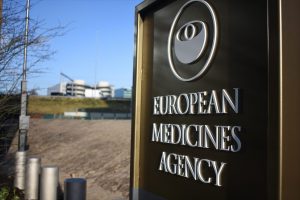World Duchenne Organization Takes Lead in European Efforts to Better Treat DMD
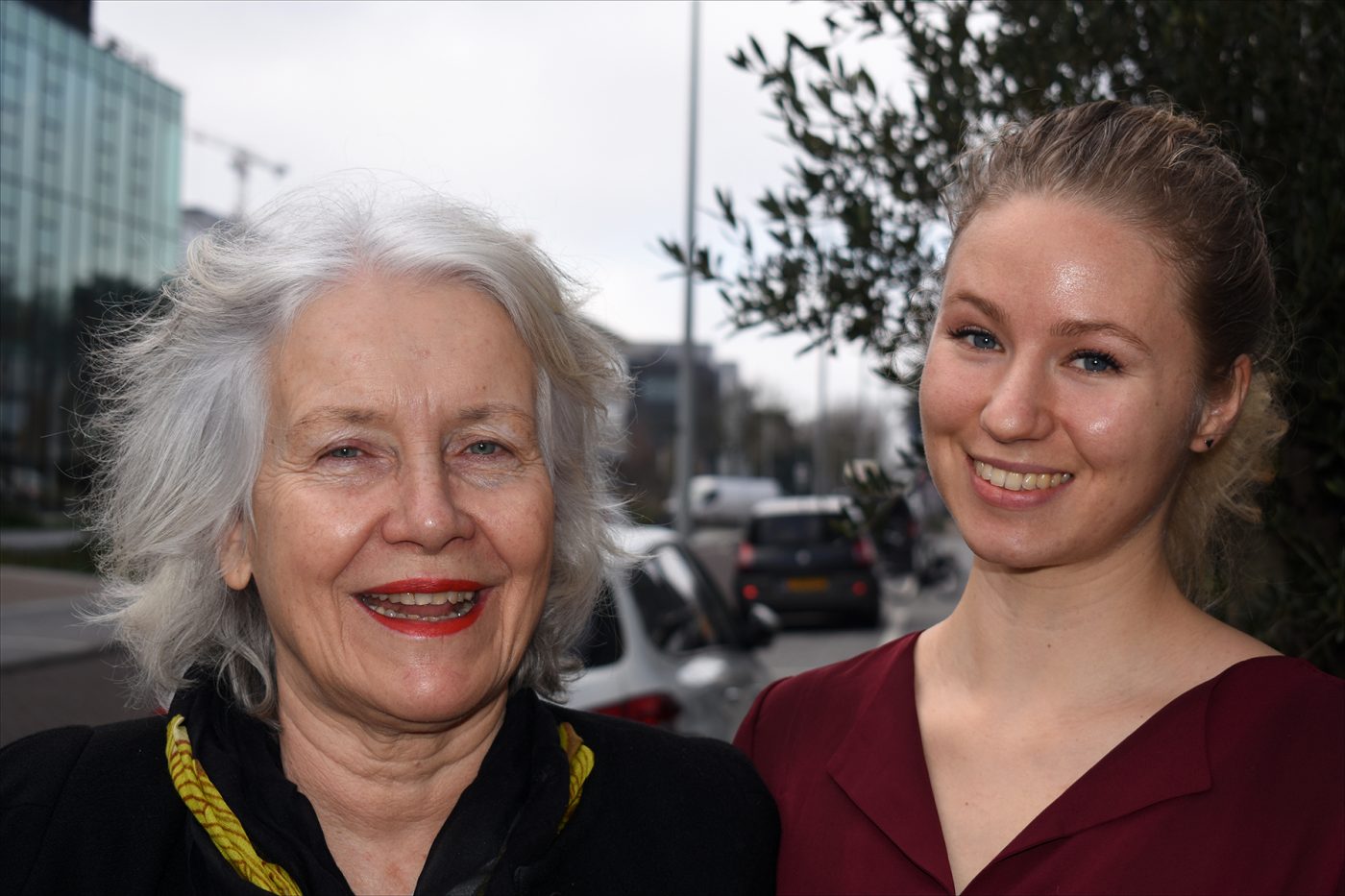
Dutch orthodontist Elizabeth Vroom, left, chairs the WDO. With her is Suzie-Ann Bakker, the group's communications manager. (Photo by Larry Luxner)
Eighty delegates from 37 countries recently met in Athens for the 2019 Duchenne Patient Academy — a three-day series of master classes aimed at deepening global understanding of Duchenne muscular dystrophy (DMD) and coordinating advocacy strategy.
The Dec. 6-8 conference, an annual event since its 2017 start, covered subjects ranging from advanced lobbying techniques and securing funds from the European Union, to the dangers of pseudoscience and how to read scientific papers.
The academy is the idea of the Duchenne Data Foundation.
“We are collecting input for the fourth edition of the Duchenne Patient Academy,” Dimitrios Athanasiou, the father of a boy with DMD, said in a press release. “With this we are well on our way to making the global Duchenne community not only the biggest but also the best educated rare disease community in the world.”
The academy is heavily supported by the World Duchenne Organization (WDO), a Dutch-based nonprofit that began life in 2000 and was formerly known as United Parent Projects Muscular Dystrophy.
Elizabeth Vroom, the WDO’s chairwoman, said her organization is also an eligible member of the European Medicines Agency (EMA), which last month relocated its headquarters from London to Amsterdam in anticipation of Brexit. In addition, it belongs to both Eurordis and the European Patients’ Forum.
WDO has 39 member groups
The 39 patient organizations from 37 countries are united under the WDO banner. They span the globe from Argentina, Brazil and Mexico to Western Europe, Israel, Lebanon, Russia, South Africa, Sri Lanka, and Australia. The United States is represented by Parent Project Muscular Dystrophy (PPMD), and Britain by Action Duchenne and Duchenne UK.
All told, these organizations speak for roughly 10,000 boys and young men with Duchenne or Becker muscular dystrophy.
Vroom, an orthodontist, got involved after her son Justus was diagnosed with Duchenne in 1992, when he was 2 years old.
“I didn’t feel like sitting on the sofa and waiting until he died,” Vroom told Muscular Dystrophy News during an interview in Amsterdam. “He had a twin sister who died young, so I felt like with Duchenne, we might have 17 or 18 years to do something.”
While trying to figure out her next steps, a friend in New Jersey faxed her a copy of a newspaper article about the first PPMD conference taking place three days later in Orlando, Florida.
“So I bought a plane ticket and went there” in 1994, she said. “A week after that conference, I started our own Dutch organization for Duchenne.”
Setting meaningful outcomes
The Dutch Duchenne Parent Project raises about €1.5 million ($1.64 million) a year to support research and clinical trials on behalf of the 500 or so Dutch boys and young men with the disease.
“We have a very lean organization. We spend almost everything we get on research,” she said. “A lot of groups are focused on only research at the end of the pipeline, but we also fund from fundamental research to clinical trials.People think that if you can’t walk anymore, nothing is to be gained. As the boys say, ‘walking is highly overrated.’ But if your arms don’t work anymore, you can’t type, feed yourself, scratch your head or brush your teeth. So we took the initiative to develop outcome measures for the upper limb.”
Vroom said non-ambulatory patients comprise two-thirds or more of all people with Duchenne.
“Life expectancy for boys with Duchenne has doubled, but we have a responsibility to ensure that this longer life is meaningful,” she said, noting that a Duchenne patient in Western Europe is far more likely to reach 30 than one living in Russia, where many boys with the disease die very young because they don’t get proper care.
Vroom — whose son is now 29 — said it would be “unthinkable” for someone who consults for a particular medical company to lobby the EMA on behalf of a particular treatment or therapy.
“We are asked to provide experts at certain meetings. However, the EMA has a very strict conflict-of-interest policy, so you can’t be an advisor or consultant to a company while also being an expert at the EMA,” she said. “So if a company wants to invite a parent to speak about the disease in a closed meeting, that same person cannot be an expert at the EMA.”
BIND to study brain dystrophin
The WDO convened in London last month to partner with the BIND project — the first large-scale international effort to study the dystrophin protein in the brain in relation to Duchenne and Becker muscular dystrophy. Dystrophin is absent or produced in very limited amounts in people with DMD, and only partly functions in those with Becker.
“The project aims to develop new outcome measures that could inform the field for future clinical trials and will promote more rigorous assessment and intervention of brain co-morbidities,” according to a Jan. 29 press release. WDO estimates that Europe is home to more than 25,000 patients with Duchenne.
“Most clinical experts are aware of the occurrence of brain co-morbidities in a proportion of individuals affected by DMD and Becker,” it continued. “These X-linked recessive disorders are the result of absent or partly functioning dystrophin protein in muscle.”
BIND (Brain Involvement iN Dystrophinopathies) connects 18 European partners as well as Japan’s National Center of Neurology and Psychiatry. The EU-funded effort, initiated by University College London, runs until the end of 2023, and is budgeted at €6.7 million (about $7.3 million).
Francesco Muntoni, MD, of the Great Ormond Street Hospital’s Institute of Child Health, said BIND hopes to identify the biological role of brain dystrophin.
“We were so occupied studying muscles, we almost forgot to focus on dystrophin in the brain,” he said. “With this project, we hope to better understand involvement in the brain, and enhance the quality of life of those affected by Duchenne and Becker.”




